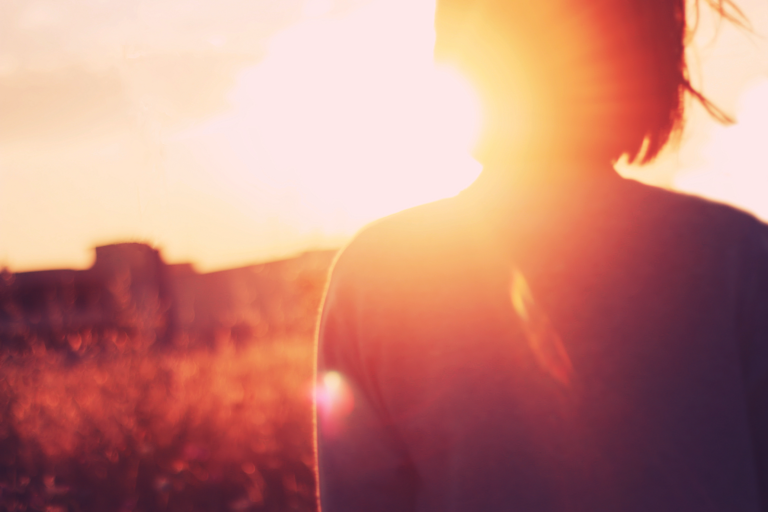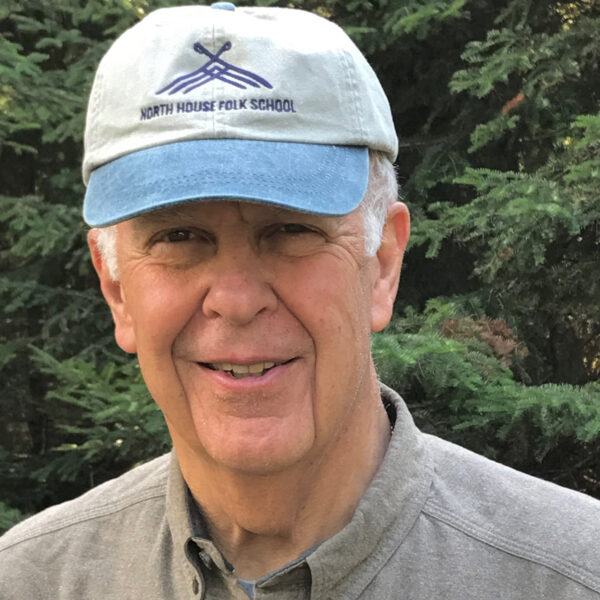
Image by Alessia Damone/Flickr, Attribution-NonCommercial-NoDerivs.
Autumn: A Season of Paradox
Autumn
by Rainer Maria RilkeThe leaves are falling, falling as if from far up,
as if orchards were dying high in space.
Each leaf falls as if it were motioning “no.”(Excerpted from Selected Poems of Rainer Maria Rilke. Read the full poem here.)
Autumn is a season of exhilarating beauty. It’s also a season of steady decline and, for some of us, deepening melancholy. The days become shorter and colder, the trees shed their glory, and summer’s abundance starts to decay toward winter’s death.
I’m a professional melancholic, and for years my delight in the autumn color show quickly morphed into sadness as I watched the beauty die. Focused on the browning of summer’s green growth, I allowed the prospect of death to eclipse all that’s life-giving about fall and its sensuous delights.
Then I began to understand a simple fact: all the “falling” that’s going on out there is full of promise. Seeds are being planted and leaves are being composted as earth prepares for yet another uprising of green.
Today, at age 76 — as I weather the autumn of my own life — I find nature a trustworthy guide. It’s easy to fixate on everything that goes to ground as time goes by: the disintegration of a relationship, the disappearance of good work well-done, the diminishment of a sense of purpose and meaning. But, as I’ve come to understand that life “composts” and “seeds” us as autumn does the earth, I’ve seen how possibility gets planted in us even in the most difficult of times.

Looking back, I see how the job I lost pushed me to find work that was mine to do, how the “road closed” sign turned me toward terrain I’m glad I traveled, how losses that felt irredeemable forced me to find new sources of meaning. In each of these experiences, it felt like something was dying, and so it was. And yet deep-down, amid all the falling, silently and lavishly the seeds of new life were always being sown.
The hopeful notion that new life is hidden in dying is surely reinforced by the visual glories of autumn. What artist would paint a deathbed scene with the vibrant and vital palette nature uses? Perhaps death possesses a grace that we who fear dying, who find it ugly and even obscene, cannot see. How shall we understand nature’s testimony that dying itself — as devastating as we know it can be — contains the hope of a certain beauty?
The closest I’ve ever come to answering that question begins with these words from Thomas Merton:
“There is in all visible things… a hidden wholeness.”
In the visible world of nature, a great truth is concealed in plain sight. Diminishment and beauty, darkness and light, death and life are not opposites: they are held together in the paradox of the “hidden wholeness.” In a paradox, opposites do not negate each; they cohabit and co-create in mysterious unity at the heart of reality. Deeper still, they need each other for health, just as our well-being depends on breathing in and breathing out.

Because we live in a culture that prefers the ease of either/or to the complexities of both/and, we have a hard time holding opposites together. We want light without darkness, the glories of spring and summer without the demands of autumn and winter, the pleasures of life without the pangs of death. We make Faustian bargains hoping to get what we want, but they never truly enliven us and cannot possibly sustain us in hard times.
When we so fear the dark that we demand light around the clock, there can be only one result: artificial light that is glaring and graceless and, beyond its borders, a darkness that grows ever more terrifying as we try to hold it off. Split off from each other, neither darkness nor light is fit for human habitation. The moment we say “yes” to both of them and join their paradoxical dance, the two conspire to make us healthy and whole.
When I try to fabricate a life that defies autumn’s diminishments, I end up in a state that’s less than human. When I give myself over to organic reality — to the endless interplay of darkness and light, falling and rising — the life I am given is as real and colorful, fruitful and whole as this graced and graceful world and the seasonal cycles that make it so.
Though I still grieve as beauty goes to ground, autumn reminds me to celebrate the primal power that is forever making all things new in me, in us, and in the natural world.

Share your reflection